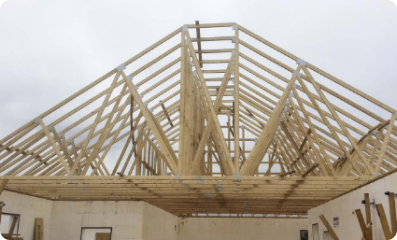Insulated Concrete Forms (ICFs) are an increasingly popular construction material used in residential and commercial construction. Made from lightweight foam blocks or panels that are filled with concrete, ICFs offer several benefits over traditional construction methods. In this article, we will explore the advantages of using ICFs in construction.
Energy Efficiency
One of the biggest benefits of ICFs is their superior energy efficiency. The insulating properties of the foam blocks or panels can reduce energy costs by up to 50%, compared to traditional wood-frame construction. This is because ICFs create an airtight envelope that reduces heat loss and eliminates drafts.
Durability
ICFs are also incredibly durable, with a life expectancy of up to 100 years. They are resistant to fire, insects, and moisture, which means that they require less maintenance than other construction materials. ICFs also have excellent structural integrity, making them ideal for areas prone to earthquakes, hurricanes, and tornadoes.
Noise Reduction
Another benefit of ICFs is their ability to reduce noise. The insulating properties of the foam blocks or panels help to absorb sound, which can create a more comfortable and peaceful living or working environment
Environmental Friendliness
ICFs are an environmentally friendly construction material, as they are made from recyclable materials and produce less waste during the construction process. They also require less energy to heat and cool, which reduces carbon emissions and helps to preserve the environment.
Design Flexibility
ICFs offer design flexibility, as they can be easily customized to meet the specific needs of a project. They can be used for both above-ground and below-ground construction, and can be designed to accommodate curved walls, corners, and other unique architectural features.
In Conclusion
Insulated Concrete Forms are a superior construction material that offers many benefits over traditional construction methods. Their energy efficiency, durability, noise reduction, environmental friendliness, and design flexibility make them an excellent choice for residential and commercial construction projects. While they may be more expensive than traditional construction methods, their long-term benefits make them a wise investment for any building project.


